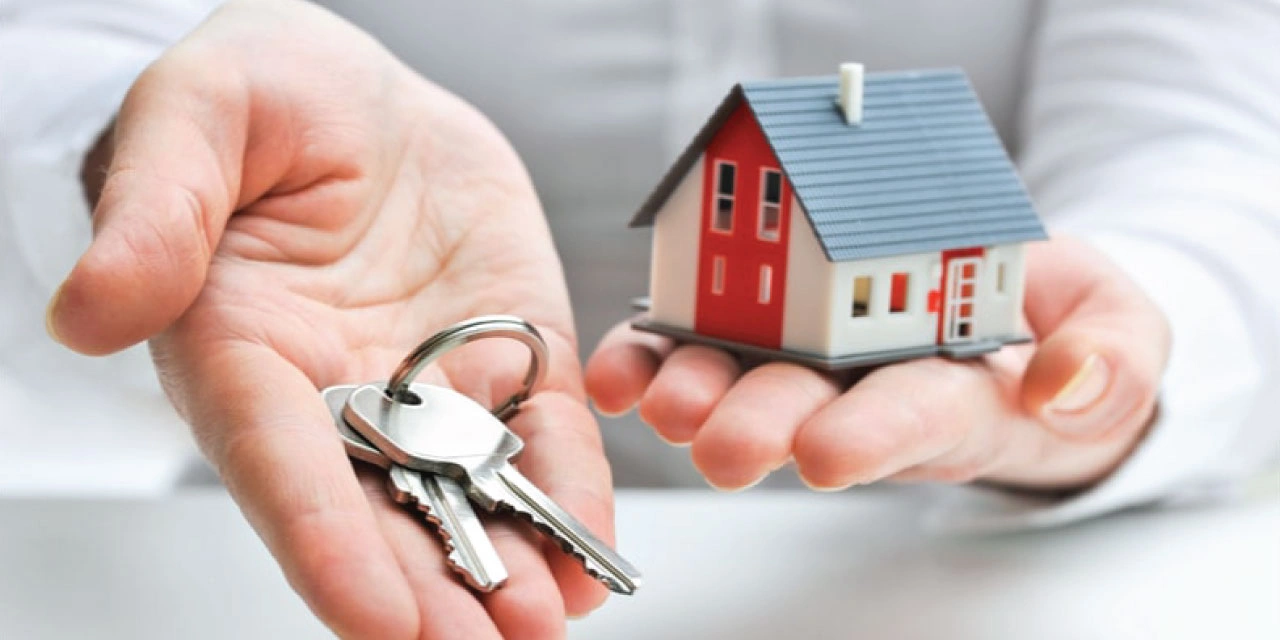Table of Content
▲
Introduction
Buying a house is a significant life decision, one that many people contemplate at various stages of their lives. While some may choose to buy a home in their early 20s or 30s, others wait until they are more established in their careers and personal lives. The age bracket of 36 to 46 years is often considered an ideal time to invest in real estate. This article explores the reasons why buying a house during this period can be a wise decision, offering both financial and emotional benefits.
1. Financial Stability
One of the most compelling reasons to buy a house between the ages of 36 and 46 is financial stability. By this stage in life, most people have had enough time to establish their careers and achieve a certain level of financial security. With a steady income, it becomes easier to save for a down payment, qualify for a mortgage, and manage monthly payments.
- Higher Income: By mid-life, individuals are often at the peak of their earning potential. This increased income allows for more flexibility in choosing a property that meets their needs and desires.
- Savings Accumulation: Over the years, you may have accumulated significant savings, which can be used towards a larger down payment. This reduces the loan amount and monthly mortgage payments.
- Better Credit Score: With more years of credit history, your credit score is likely to be stronger, leading to better mortgage rates and terms.
2. Work-Life Balance
The ages between 36 and 46 are often when people seek a better work-life balance. Owning a home can be an integral part of achieving this balance, providing a stable environment to relax and recharge after work.
- Settling Down: Many people in this age group are looking to settle down, possibly with a family. A home provides a sense of permanence and security.
- Personalized Space: Owning a home allows you to customize your living space to suit your lifestyle, creating a comfortable and functional environment that supports your work-life balance.
3. Family Considerations
For many, the decision to buy a home in their late 30s or early 40s is driven by family needs. Whether it's accommodating a growing family or providing a stable environment for children, owning a home offers several benefits.
- Space for Growth: As your family grows, you may need more space. Buying a home allows you to choose a property with enough bedrooms, bathrooms, and living areas to comfortably accommodate everyone.
- Stable Environment for Children: Children benefit from a stable living environment. Owning a home ensures they have a consistent place to grow up, attend school, and make lasting memories.
- Proximity to Schools: When buying a home, you can prioritize locations near good schools, ensuring your children have access to quality education.
4. Long-Term Investment
Real estate is often considered a safe and profitable long-term investment. Buying a home between the ages of 36 and 46 allows you to benefit from property appreciation over time.
- Property Appreciation: Real estate tends to appreciate over time, meaning the value of your home is likely to increase. This can result in significant financial gains when you decide to sell.
- Equity Building: As you pay off your mortgage, you build equity in your home. This equity can be leveraged for future financial needs, such as funding your children’s education or making home improvements.
- Retirement Security: By purchasing a home in mid-life, you have enough time to pay off the mortgage before retirement, ensuring you own the property outright and reducing living expenses in your later years.
Also Read: What is margin money in property purchase?
5. Tax Benefits
Owning a home comes with several tax benefits that can provide financial relief, especially for those in their prime earning years.
- Mortgage Interest Deduction: Homeowners can deduct the interest paid on their mortgage from their taxable income, reducing their tax liability.
- Property Tax Deduction: Property taxes paid on the home can also be deducted from taxable income, offering additional savings.
- Capital Gains Exclusion: If you sell your home at a profit, you may be eligible to exclude a portion of the capital gains from your taxable income, depending on how long you’ve owned and lived in the home.

6. Emotional and Psychological Benefits
Beyond the financial and practical reasons, owning a home offers emotional and psychological benefits that are particularly valuable during mid-life.
- Sense of Accomplishment: Buying a home is a significant milestone, often representing years of hard work and financial discipline. It provides a sense of accomplishment and pride.
- Stability and Security: Homeownership offers stability and security, providing a safe haven for you and your family. This stability is especially important during the mid-life years, when you may be dealing with various personal and professional changes.
- Personal Freedom: Owning a home gives you the freedom to make changes to your living space without needing permission from a landlord. You can renovate, decorate, and landscape according to your preferences.
7. Location and Lifestyle
At this stage in life, many people have a clear understanding of their lifestyle preferences and the type of community they want to live in. This knowledge can guide their home-buying decisions.
- Choosing the Right Neighborhood: You may have specific preferences for the type of neighborhood you want to live in, whether it’s a quiet suburb, a bustling urban area, or a community with good schools and parks.
- Proximity to Work and Amenities: By mid-life, you likely have a stable job and can choose a home that is conveniently located near your workplace, reducing commute time. You may also prioritize proximity to amenities like shopping centers, healthcare facilities, and recreational areas.
- Long-Term Planning: Buying a home in a location that meets your long-term needs and lifestyle preferences ensures that you can enjoy your property for years to come without needing to move frequently.
8. Market Conditions and Opportunities
The real estate market can vary greatly depending on economic conditions, interest rates, and regional factors. Mid-life buyers are often in a better position to navigate these market conditions and take advantage of opportunities.
- Economic Stability: Mid-life buyers are more likely to have a stable income, making them less vulnerable to economic fluctuations and more able to weather market downturns.
- Lower Interest Rates: Interest rates can significantly impact the affordability of a mortgage. If market conditions are favorable, mid-life buyers can lock in low-interest rates, reducing the overall cost of the home.
- Opportunities for Investment: In addition to purchasing a primary residence, mid-life buyers may also have the financial means to invest in additional properties, such as vacation homes or rental properties, further diversifying their investment portfolio.
9. Preparing for Retirement
Buying a home between the ages of 36 and 46 allows you to plan for retirement more effectively. With enough time before retirement, you can ensure that your home meets your long-term needs.
- Paying Off the Mortgage: By purchasing a home in mid-life, you have ample time to pay off the mortgage before retirement, ensuring that you have a place to live without the burden of monthly payments.
- Aging in Place: When buying a home at this stage, you can consider features that will make it easier to age in place, such as single-story layouts, wide doorways, and accessibility modifications.
- Downsizing or Upsizing: Depending on your needs, you may choose to downsize to a smaller, more manageable home or upsize to accommodate visiting family members or hobbies that require more space.
10. Impact of Life Experiences
By mid-life, most people have gained significant life experience that can influence their home-buying decisions. These experiences can lead to more informed and thoughtful choices.
- Prior Homeownership Experience: If you’ve owned a home before, you’re likely familiar with the process and the responsibilities that come with homeownership. This experience can help you make better decisions when buying your next home.
- Understanding Your Needs: Over time, you gain a clearer understanding of what you want and need in a home. This can include specific features, layouts, and amenities that suit your lifestyle.
- Learning from Past Mistakes: Life experiences, including past mistakes, can guide you in making better decisions. Whether it’s avoiding certain financial pitfalls or being more cautious in negotiations, these lessons can help you secure a better deal.
Conclusion
Buying a home between the ages of 36 and 46 is a strategic decision that can offer numerous benefits. From financial stability and investment opportunities to personal fulfillment and long-term planning, this stage of life provides an ideal window for making a real estate purchase. By understanding your needs, leveraging your life experiences, and taking advantage of favorable market conditions, you can make a sound investment that supports your lifestyle and secures your future. Whether you’re looking to settle down with a family, plan for retirement, or simply achieve a lifelong goal, mid-life realty offers a pathway to achieving your dreams.
Also Read: 10 Saving Strategies for First-Time Homebuyers



_1771577585.webp)


_1771582392.webp)
Ans 1. This age range is often associated with financial stability, career advancement, and a clear understanding of personal and family needs, making it an ideal time to invest in real estate.
Ans 2. By mid-life, most people have a higher income, better savings, and an improved credit score, allowing them to secure favorable mortgage rates and terms.
Ans 3. Purchasing a home at this stage allows you enough time to pay off the mortgage before retirement, reducing living expenses and providing financial security in later years.
Ans 4. Consider factors such as space for a growing family, proximity to good schools, and a stable environment that supports your children’s development.
Ans 5. Owning a home allows you to create a personalized and comfortable living space, supporting a better work-life balance as you settle down in your career and personal life.